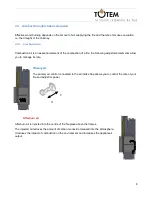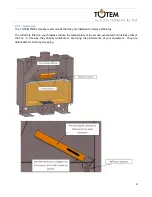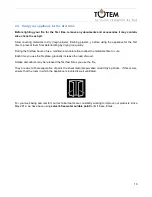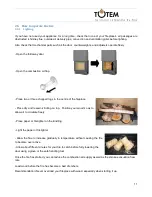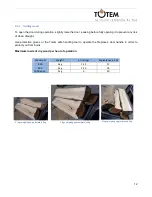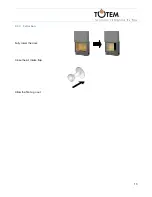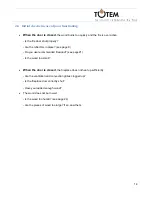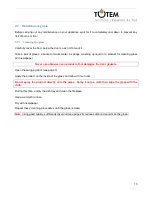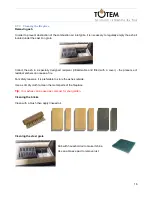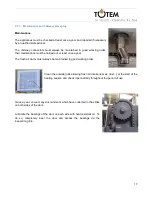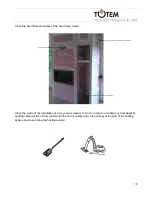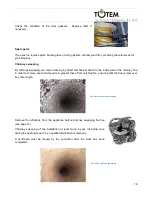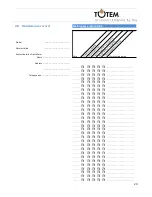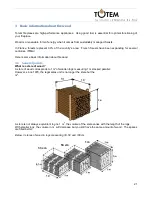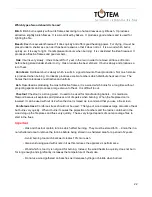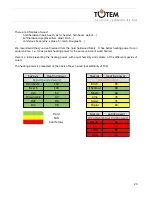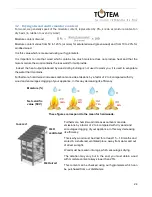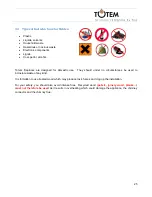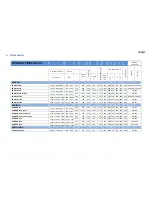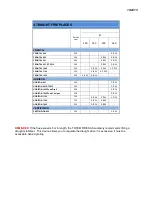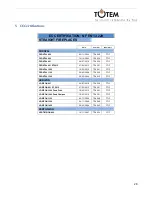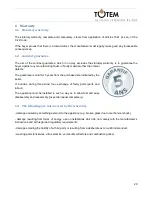
22
Which type of wood should I choose?
Birch
: Birch burns quickly without its flames becoming too hot and leaves very little ash. It produces
attractive, slightly bluish flames. It is a wood liked by bakers. It produces good embers and is used for
lighting the fire.
Beech
: Beech is excellent firewood: it dries quickly and offers good heating power. For drying, it must be
placed under a shelter as soon as it has been resawn so that it does not rot. It is a wood which burns
quickly, so it is easy to light. It emits pleasant odours when burning. It is considered the idea firewood. It
produces attractive flames and good embers.
Oak
: It burns very slowly. It has to be left for 1 year in the rain in order to remove all traces of tannin
before being stored under shelter to dry. Oak produces the best embers. It burns slowly and produces a
lot of heat.
Hornbeam
: Hornbeam burns slowly which results in a good amount of heat production. Not much smoke
is produced when burning. Hornbeam produces excellent embers which distribute heat over time. The
flames that it produces are attractive and uniform.
Ash
: Described as producing the most attractive flames, it is a wood which burns for a long time without
projecting sparks and produces a large amount of heat. It is difficult to cut.
Chestnut
: Chestnut is a strong wood. It used to be used for manufacturing barrels. It is mediocre
firewood because it explodes and produces a lot of sparks when burning. When the fireplace door is
lowered, it can be used without risk: when the door is raised we recommend that you use a fire screen.
Coniferous trees
: Coniferous trees should not be used. This type of wood releases large amounts of heat
but burns very quickly. When it burns it causes the projection of embers and the resins contained in the
wood clog up the fireplaces and flues very quickly. These very large deposits of soot encourage fires to
start in the flues.
Important
:
- Oak and chestnut contain tannins which affect burning. They must be stored for 6
– 9 months in a
non-sheltered area to remove the tannins before being stored in a sheltered area for a period of 2 years.
- Avoid burning too much bark as it creates 10% more ash.
-
Also avoid using wood with knots in it as this reduces the appliance’s performance
- Wood which is too dry is not good for burning. Indeed, the wood heats too quickly, does not burn
for long enough and significantly increases the temperature of the smoke.
- Do not use wood gathered on beaches as it releases hydrogen chloride when burned.

